Posts Tagged ‘Empowering Women’
Women’s Empowerment Programming is Everywhere
When people ask us, “Where is World Relief’s women’s empowerment programming?” Our answer is: It’s everywhere.
Transforming how men and women live, relate and honor God in their relationships is at the very heart of what we do. We recognize that women and girls don’t exist in isolation. They live, they work and they go to school in community. And only with community transformation will gender reconciliation, empowerment and transformation truly occur.
While we have several programs that center around women — trauma-care groups for sexual and gender-based violence victims in DR Congo, maternal health programs for mothers and teen clubs for pre-adolescent girls — we incorporate the idea of gender equality into nearly all of our international development programming, starting at the belief level.
Today, I want to share two stories with you about a woman named Salina — one fictionalized, and one the truth. Salina’s story illustrates the power of World Relief’s gender-integrated approach and is proof that together, we can #breakthebias and create communities where women and girls can thrive.
Salina’s Story: What Often Happens
Salina is a young wife and mother living in Malawi. She decides to join a savings group and has great hope that this program will change her life. At first, she is encouraged by the community of women and the potential opportunity. But it’s not long before her husband, Chilaw, becomes resentful of the profitable women’s program.
When Salina takes home her savings, Chilaw takes her hard-earned money for himself and spends it frivolously. As a result, Salina is unable to invest in what she’d hoped — nutritious food for her children, health insurance and school fees. Her girl child, Charity, in particular, remains malnourished and uneducated.
Though Chilaw brings home produce from a local agricultural group, both parents prioritize food for their son over Charity. They sell the remaining produce at the market and send their son to school with their earnings, but Charity remains at home doing household chores. She has little awareness of her worth as a young woman and awaited the day when she’ll be married for a bride price and step into the same life her mother has had. Salina’s home is trapped in a vicious cycle of economic, social and relational poverty.
Now, let’s rewrite this story, and see what happens when World Relief’s gender-integrated approach is applied.
Salina’s True Story
In Salina’s real story, she hears about a savings group. She wants to join, but she’s afraid of what her husband might think. After all, he is the decision maker of the family. Nevertheless, World Relief hears of Salina’s interest and encourages her to join.
Simultaneously, a local church volunteer meets with Salina and her husband, Chilaw. They explore a transformative curriculum that teaches Chilaw about his wife’s inherent value and worth. He learns that she is also created in the image of God, deserving of love and respect and possessing a God-given potential that must be nurtured, honored and developed.
He encourages her to go to the local savings groups and when she saves money, they sit and talk together about how to use it along with the money Chilaw earns from selling his agricultural produce.
Salina and Chilaw also learn about the value of their daughter, Charity, and decide it’s time to send her to school with the money they’ve saved. Now that Charity is in school, World Relief encourages her to attend the local adolescent girls club. Chilaw thinks it’s important for his daughter’s wellbeing and development, so he also encourages her to go. Charity learns about the power of her education and the perils of early marriage and sets goals to go to university.
Can you spot the difference?
In both stories, savings, agriculture, nutrition and adolescent clubs are in place, yet only in the second of these stories do these programs have a restorative, transformational and generational impact on the lives of Salina and her family.
The real transformation comes mostly prior to the programmatic benefits — within the home, at the belief and value level. This is the power of our restorative gender work.
We know savings, agricultural and countless other technical programs work most effectively when they build upon the foundational work that has been done within the home, between husband and wife, parents and children.
That’s why, at World Relief we approach female empowerment at the belief level, starting with the family structure. We see the empowerment of women and girls happen not because our programming is exclusively focused on women and girls, but because we work to ensure the whole community recognizes and respects the voices, roles and unique gifts of these women and girls.
Our transformative curriculums — focused on God’s truth that each man, woman and child are made in the image of God — drive this innovative approach to relief and development. We believe that unless relationships have been transformed so that both man and woman, boy and girl, are equally valued, given equal opportunity and are equally empowered, the impact of our programming is compromised.
Without this core transformation, Salina, her daughter and the generations of women who will come after them stay trapped in a cycle of marginalization and poverty. With it, however, change is truly possible. A better future exists for Charity, her daughters and her granddaughters. Their story has been rewritten.
Women’s agency, dignity, opportunity and empowerment come not just from technical programs, but from a deep, internal community understanding and drive for each and every one of their community members—men and women, boys and girls—to reach their full, God-given potential.
So, where is our women’s empowerment programming?
It’s everywhere.

Francesca Albano currently serves as Director of Branded Content at World Relief. With a background in Cultural Anthropology and a graduate degree in Strategic Marketing Communications, she connects her interests in societal studies and global cultures with her training in brand strategy and storytelling. Francesca is especially passionate about grassroots community development and the treatment and advancement of women and girls around the world.
She Dreams Courageously: One Woman Who is Making it Happen
“I believe that while you might not be able to change the whole world, you can change your world.”
— Leisha Pickering
Leisha Pickering dreams courageously. While going about her life as usual on her farm in Mississippi, a man stopped by asking for work one day. This inspired an idea. She said yes to that idea, started pursuing it in her kitchen and today she is changing the lives of people in her community, the U.S. and around the world.
As Founder and CEO of Musee and Pretty Inside, Leisha utilizes her brands to create opportunities for those who may not otherwise be given one, to support those in need and to empower women. World Relief is proud to be a partner in this work.
World Relief President, Scott Arbeiter, sat down with Leisha to learn about her story and her desire to use her company to impact the women who purchase their products while also affecting change for refugee women and children around the world.
Download the transcript of the interview here →
Leisha dreams courageously and inspires others to lean into the change that we can create in the world. Creating change doesn’t require much, only that you begin — with your idea, what you have and where you are. Will you join us in building a better world by giving today?
Visit Pretty Inside to make a purchase and help support women rebuilding their lives.
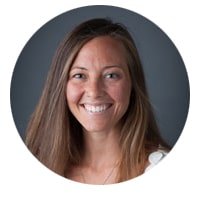
Dana North serves as the Marketing Manager at World Relief. With a background in graphic design and advertising and experiences in community development and transformation, Dana seeks to use the power of words and action to help create a better world. Dana is especially passionate about seeking justice for women and girls around the world.
Systems Change in Seattle
As World Relief Seattle’s Executive Director and an immigrant myself, I have seen the razor-thin line between security and insecurity that many immigrants experience. Never was this more clear to me than this year, as our office rallied to serve those hardest hit by the COVID-19 pandemic.
As the pandemic wore on last year, we received many calls for help from our community — for help with navigating unemployment, for help finding work, for help with rent assistance and for help with the food insecurity many were facing.
World Relief Seattle’s Resiliency Programs Manager, Tahmina Martelly, jumped into action, along with Santa Pradhan, our Employment Manager. Both of them being women of color and women who have faced the refugee journey, they were hearing the need both at work and at home in their communities.
Without delay, the Employment Team united to help over 98 folks access unemployment benefits and many others get re-employed. The Resiliency team addressed the food insecurity issue in partnership with Hillside Church, where our Community Garden is located. Tahmina began to put the word out and people from all across the community began to show up with food. We formed a formal partnership with Northwest Harvest and began a weekly food distribution site— serving more than 800 families a week with food boxes that lasted 3-5 days.
One day, I went to check out the operations, first-hand. And it struck me that most of the folks in the cars were from our black, brown and immigrant communities. After 30 years of working in marginalized communities, I realized that they were the very same people that were in these lines whenever crisis hits. It disturbed me so much that I returned to my car crying and wondering how we could change the system, so that the next time a crisis hits, our communities could go to the store and buy their own food, not wait in lines at distribution sites.
As a Leadership Team, we decided that to change the system we needed to invest in two powerful and proven strategies to move people out of poverty— economic and educational empowerment. So this year, we’re planning to launch several “system change initiatives”. They will include a commercial/teaching kitchen, an Immigrant Entrepreneurship Academy for emerging businesses and support services for existing immigrant businesses. We are also going to continue investing in immigrant and refugee youth — making sure the curriculum in our Summer Academy is academically rigorous, provides academic support and prepares them for a bright future.
We might not be able to change the whole world, but this International Women’s Day and for Women’s History Month, the amazing women on our team, and I, hope to make a positive change in our small piece of the world!
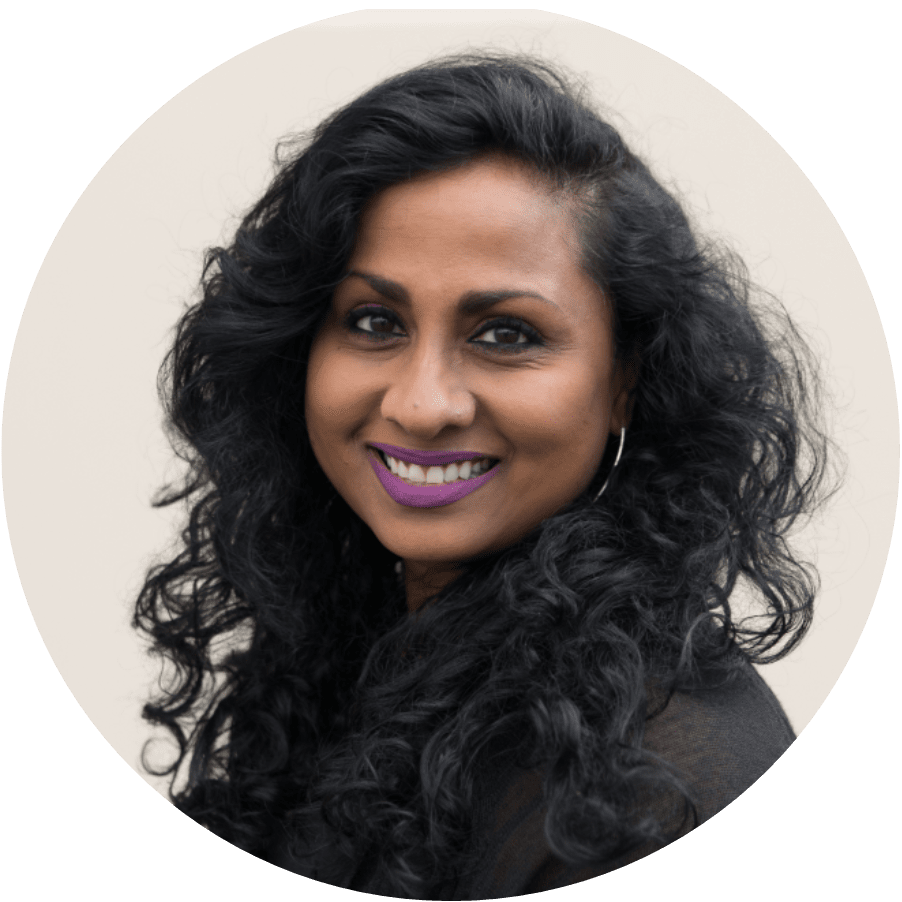
Chitra Hanstad began as Executive Director at World Relief Seattle in January 2017. Prior to this, she spent time in India consulting for Justice Ventures International (an anti-trafficking organization) on strategic planning and fund development and as a Philanthropic Advisor for the Seattle Foundation. While her career started in corporate advertising, public relations and media relations, she has spent most of the last twenty years working for local and international non-profits. Chitra has a passion for seeing at-risk communities thrive. She has served on many boards including Covenant World Relief & Urban Impact, and volunteers with The Stability Network.
Breaking Barriers in Burundi: Women Who Make It Happen
Leocadie is a leader in so many ways. She’s a farmer, a wife, a mother to eight children and a grandmother of 20 — two of whom, she proudly says, are a set of twins who were born this past February.
For most of her life, though, Leocadie says women weren’t welcomed into leadership roles within the community nor were they empowered to be a part of making decisions for their families. But that began to change in 2010 when World Relief launched a savings program in her community and invited women, like her, to lead.
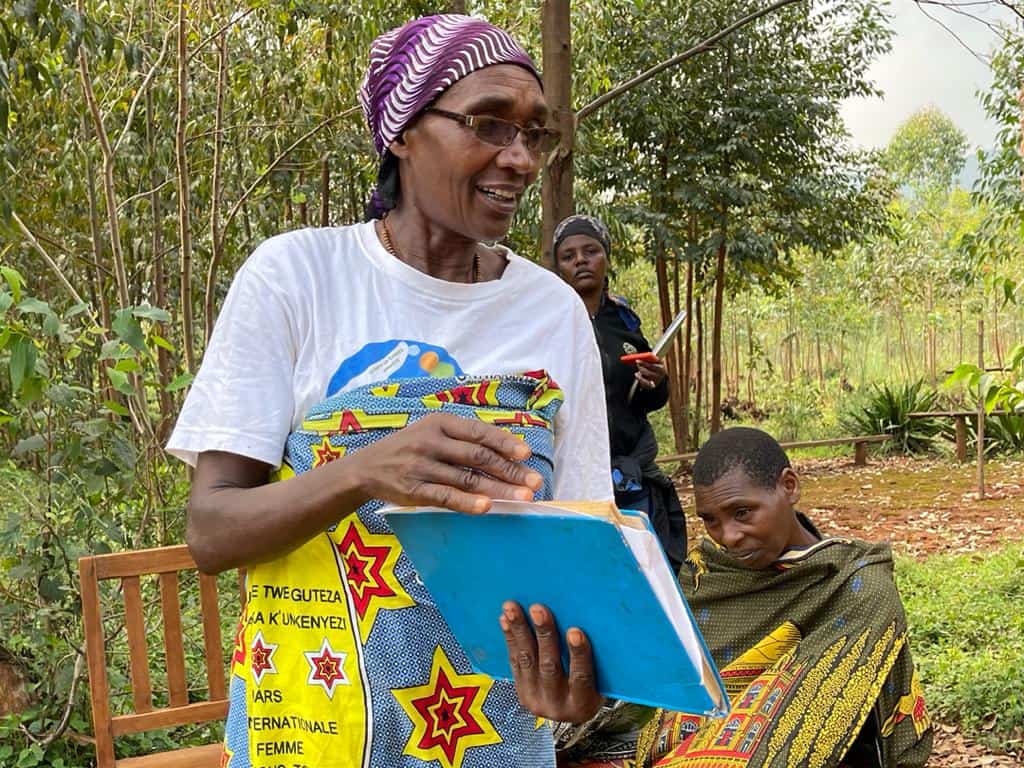
“When our group was formed I was elected to lead them. I took it as a privilege,” she said. “I was inspired by the interventions that [World Relief] was conducting because I saw them as a way to help others in my community who were going through many issues within their families.”
Over the next 11 years, Leocadie continued to grow as a leader. When World Relief launched agricultural programming in her community, she stepped up to lead in this area as well. And while the economic advancements she and her group have made by implementing new agricultural techniques and better financial management, the transformation her community has experienced in the area of gender equality is equally as remarkable.
“In the past, women were supposed to stay home and take care of the family, with their time mostly spent in the kitchen,” she said. “Now we participate in all decisions, at the colline (community) level. We have female leaders, savings group female leaders. I am very happy to see how I am respected by women and men. They listen to me because they see the impact of what I am doing.”
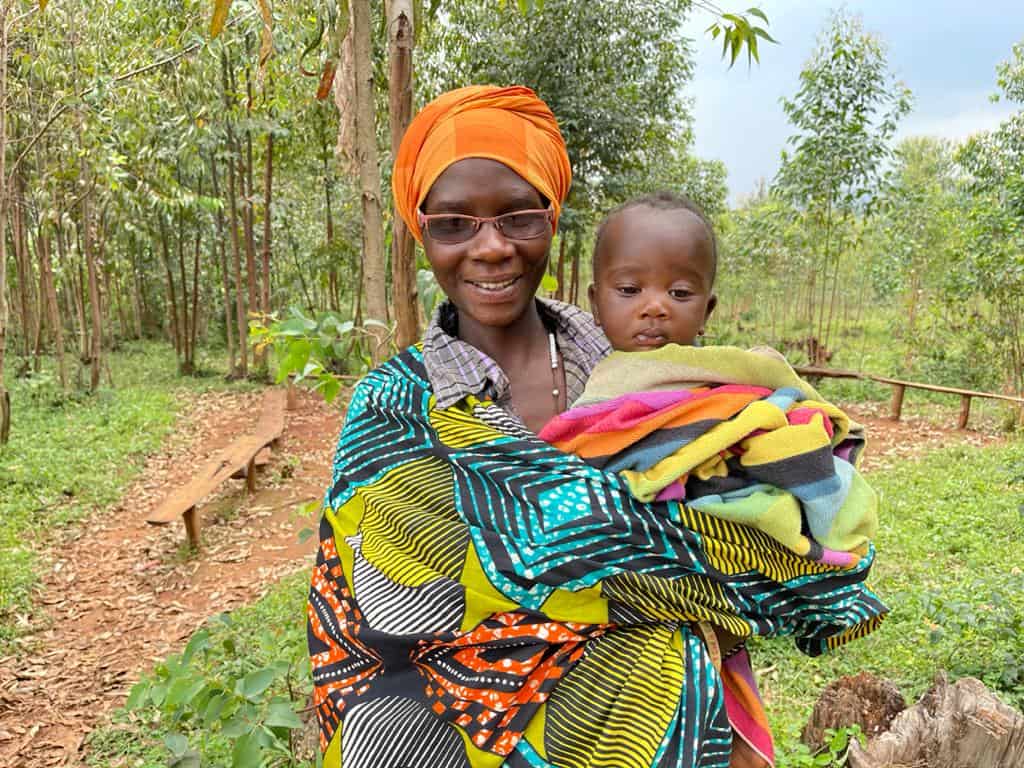
Leocadie’s leadership is rippling throughout her community. She’s created a sense of connectedness and support for women in her group like Jeane, the youngest member of the group, who says that learning from Leocadie has helped her grow as a mother and has improved her marriage.
“I am very happy to be part of this group,” Jeane said. “I am one of the youngest with two little children. I get an opportunity to be with wise women, grannies. Group members opened the door for me to learn from their marriages. As a result, I know how to be a better woman, and my husband and I discuss our feelings and make decisions together. ”
And it’s not just the women who are experiencing transformation. Pasteur Sinzumusi, the lone man in the group of 24 women, has increased his income, improved his marriage and totally shifted the way he views women thanks to Leocadie’s leadership.
Pasteur initially joined the group because he noticed the women were experiencing a better crop yield than he was.
“Before joining them, I had no savings at all,” he said. “I was farming in old fashion (outdated techniques), which did not have a good harvest. The reason I joined is because I saw their lives were different from mine. They had new skills and knowledge in farming, so I approached them.”
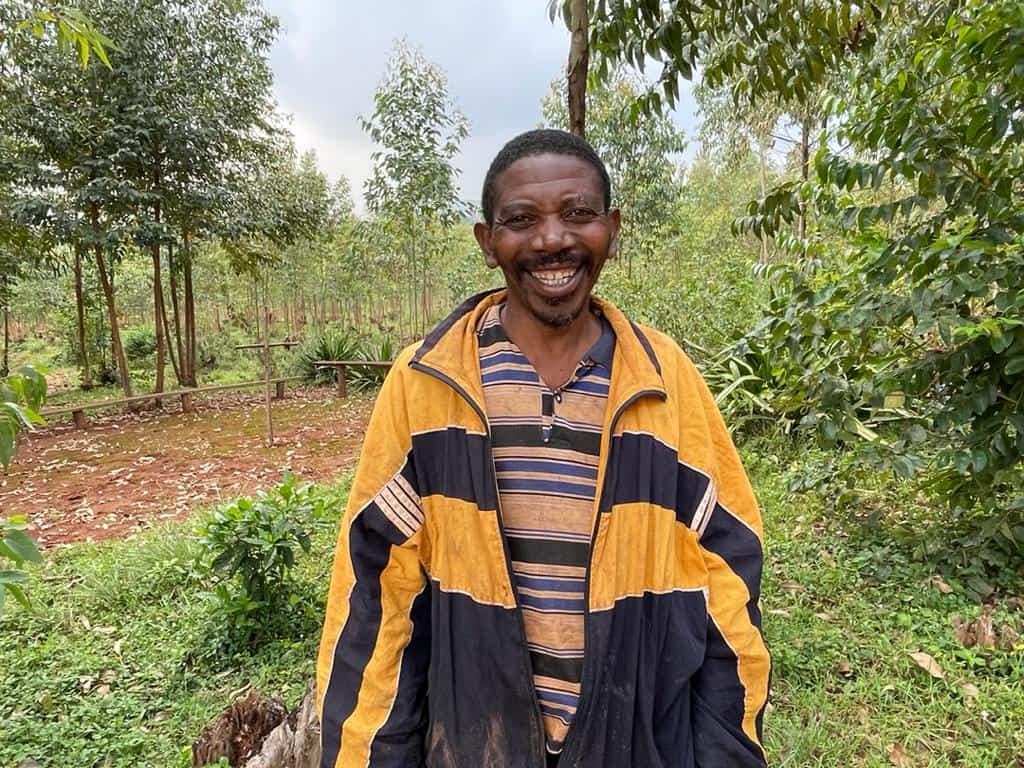
Today, Pasteur says his plot of land looks amazing, his income has increased and he can now easily afford to buy necessities like soap and send his kids to school. He attributes much of his success to the leadership of Leocadie and the community of women he has learned alongside.
“I respect my leader. She is just amazing. She does her duties well. Through her leadership, my way of viewing women has changed. Before I thought they couldn’t lead, but now I can testify that women are capable of leading. And this made me respect my wife and let her step into exercising her gifts.”
Leocadie is grateful for all the ways she’s seen her community transform. Women are more involved in community associations; marriages are more egalitarian in their decision-making; women participate in household management and can contribute financially.
She is hopeful to see her group continue to improve their farming and embrace new skills.
As we celebrate the accomplishments of women and the barriers they are breaking down, we echo the words of Pasteur when he said: “Women can do things as men. I invite all men to come to see how our association is well organized and well managed by female leadership. They will learn that women are good and great leaders.”
Millions of women, just like Leocadie, are choosing to challenge the limits placed on them and break through the barriers around them. Their daughters, granddaughters and great-granddaughters will know a world where women are respected, valued and lead. Will you join them in building a better world by giving today?
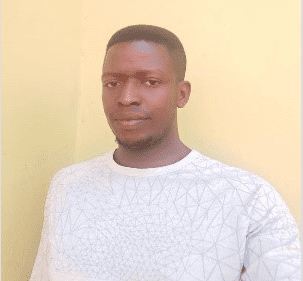
Ezechiel Hatungimana born and raised in Burundi with a passion of seeing his country developed holistically. Prior to World Relief, Ezechiel has served in a local organization aiming to empower the lives of people holistically, working directly with churches. While he is still completing his bachelor’s degree in Business Administration, He joined WR 2018 and he supervises a team of 20 people who equip 500 local churches. Ezechiel is married and blessed with two children. Ezechiel and his Family worship at PTI Church where he serves as a preacher.

Rachel Clair serves as a Content Writer at World Relief. With a background in creative writing and children’s ministry, she is passionate about helping people of all ages think creatively and love God with their hearts, souls and minds.
Crisis in Sudan: Responding to Violence and Empowering Women
Civil Unrest in Geneina
On January 16, 2021, civil unrest was reported in the Geneina area in West Darfur as a result of violence between Masalit and Arab tribesmen — groups that have had a long history of conflict over land and water resources. Tensions have continued to grow in the days since this recent bout of violence, resulting in:
- About 183,000 displaced people in the Darfur region, with an additional 3,500 who crossed the border into Chad*
- At least 470 deaths and 300 injuries
- An estimated 149,000 displaced people in West Darfur alone*
In crises such as these, women and girls are especially vulnerable. While women and girls in Sudan already face challenges due to their gender, these challenges become more pronounced when they are living in displacement camps as a result of violence in their communities.
The United Nations High Commissioner for Refugees (UNHCR) states that “sexual and gender-based violence (SGBV), including domestic violence and alcohol abuse, increases in such circumstances. Women and girls may be attacked as they look for firewood or water outside the camp”, and “As financial resources are depleted, adolescent girls are married off at increasingly younger ages”.
A Trusted Partner
Over the last several years, World Relief Sudan has become a trusted agency among the Sudanese people, other NGOs and the Sudanese government. This trust enabled our team to quickly respond to the latest humanitarian crisis in partnership with UN agencies and other INGOs.
World Relief Sudan was recently awarded $900,000 in emergency funds from the Sudan Humanitarian Fund (through the UNDP) to provide immediate humanitarian assistance.
Our emergency response thus far has included provision of potable water and emergency latrines, hygiene promotion training, mobile health services for pregnant women and children under five and distribution of basic non-food items for 39,000 internally displaced persons.
Unique Challenges for Women
World Relief Sudan is well aware of the specific challenges which women and girls face in such environments and is taking measures to prevent violence, protect vulnerable beneficiaries and support the agency and voices of women in their communities.
Among the many projects to provide for the immediate needs of displaced people, the emergency response team is working to ensure that all people in displacement camps have a clean water source less than 1km from their temporary dwelling.
These water points are fenced, to reduce the possibility of violence around these areas, as violence towards women is common when women travel outside of their villages to collect water. By reducing the distance to water points and fencing them in, women are at far lower risk of being attacked.
In addition, WASH (water, sanitation and hygiene) committees are being formed — and are composed of at least 40% women — to monitor the use and maintenance of said water points.
WASH committees are important because they ensure regular maintenance and orderly use of the access points. When women are on these committees, they can better emphasize the protection of women and children at water access points.
What’s more, because these committees are made up of local residents, they will continue in their work long after World Relief has left the area.
Challenging for Change
As the conflict in West Darfur continues, women, girls, men and boys are all receiving effective emergency services from World Relief Sudan to mitigate their present challenges.
These services are provided with special emphasis on gender protection and representation, challenging communities to change the way they engage with one another, and empowering women to take leadership roles in their communities.
*Update: As of May 12, 2021, the number of people displaced by the current conflict has increased:
- 151,400 IDPs in Geneina (West Darfur) from Jan-April 2021
- 65,000 newly displaced IDPs in April alone
- Total of 237,000 people displaced by conflict in the Darfur region in the first 4 months of 2021 – which is more than 4 times those displaced by conflict in all of 2020.

Lydia Dawson serves as World Relief’s Humanitarian and Disaster Response Unit Program Officer in Sudan, and in disaster response worldwide. Prior to joining World Relief, Lydia worked in homeless services and community development in Oregon and California. She is passionate about equity and honor for underrepresented groups, both locally and internationally.
Seeing the Gift in Women
This time last year, right before COVID-19 exploded across the globe, World Relief’s International Programs leadership team came together for a weeklong global gathering in Musanze, Rwanda. As sisters and brothers from 11 different countries came together — Haiti, Cambodia and Kenya to name a few— we broke bread, prayed and celebrated all that God has done through World Relief in our 75 years of service.
While the entire week was filled with rich fellowship and deep strategic conversation, there was one particular day that impacted the three of us greatly. On that day, we focused our learning and discussions around the theme of gender equality. World Relief leadership presented our top strategic goals, one being greater gender equality both within our offices and across our programs.
To our great encouragement, everyone in attendance pledged to reaching this goal by 2022 through the following commitments:
- Commitment of Leadership: Leadership in each country office understands and prioritizes gender equality not only through their own actions, but addresses gaps recognized organizationally and programmatically.
- Gender Balanced Leadership: Increased gender balance in leadership roles at all levels of World Relief staffing. This is manifested by an increased proportion of women in all staff roles with special focus on most senior roles. Women are intentionally developed and included in succession planning and policies reflect concern for equality in career development opportunities and in equal compensation and benefits practices.
- A Gender-Sensitive Organizational Culture: World Relief is recognized internally and externally for its gender-sensitive organizational culture.
- A Gender Programming Focus: A gender lens is incorporated throughout the entire programming cycle within World Relief programming. This is manifested by staff being knowledgeable in the basic elements of gender analysis and possessing relevant technical skills to integrate gender in programming.
- An Accountability Framework: An accountability framework is in place organizationally to track progress on gains made in all of the above areas and to inform future action regarding gaps.
As the day folded into evening, the women of Word Relief led us in worship. There were songs, poetry and a devotional from our, then, new Burundi Country Director, Cesalie Nicimpaye, a long-awaited woman among many men. Women danced and sang in every language. This small moment felt to us like a commissioning as the men prayed over us at the end of the evening saying, “Help us see the gift you have given us in the women of World Relief.”
Since then, despite the hurdles that 2020 presented, we have each spent much of our time advocating for gender equality and working tirelessly to see a biblical vision of equal leadership among men and women become the norm across World Relief and beyond.
Today, as we prepare to celebrate International Women’s Day, we celebrate just a few of the outcomes and small beginnings that this commitment has spurred on:
- Every World Relief international office now has a dedicated gender focal point
- Effective June 2020, World Relief rolled out a long-awaited paid maternity and parental leave policy.
- Every World Relief international office has concluded a gender scorecard based upon the work of the Wheaton Network Initiative on Gender, Development and Christianity .
- All World Relief offices are in the process of creating a gender plan, which includes improvements in gender sensitive programming and data collection, recruitment processes and leadership pipelines that target women and better facilities for our female staff.
- All international offices are currently participating in a six-week intensive Development Associates International course, Women and Men Leading Together.
As 2021 brings with it new opportunities for growth in this work, we will continue to challenge for change, creating a better world for women and girls for generations to come. Will you join us?
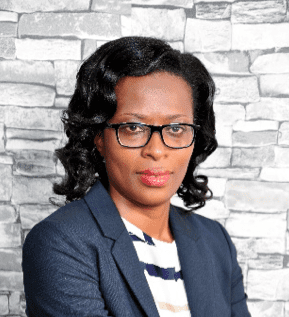
Clemence Nkulikiyinka has served with World Relief since 2008. Currently she serves as a Technical Advisor for Integral Mission, and one of global gender focal point. She has served in different roles, especially in Rwanda.
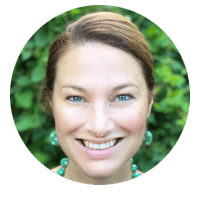
As the Director of the Program Resource Team, Joanna Kretzer Chun leads a team of global technical advisors that support World Relief international programs spanning Health and Nutrition, Savings, Agriculture, Child Development and Protection, and Couples’ Strengthening. With over fifteen years of international development experience, Joanna’s programming background spans the areas of gender mainstreaming, women’s empowerment, child protection, child development, faith leader engagement, and social norm change. Joanna holds Master degrees in Intercultural Studies and Family Studies from Fuller Seminary and a BA in Foreign Affairs from the University of Virginia. She resides with her family in Washington, DC.
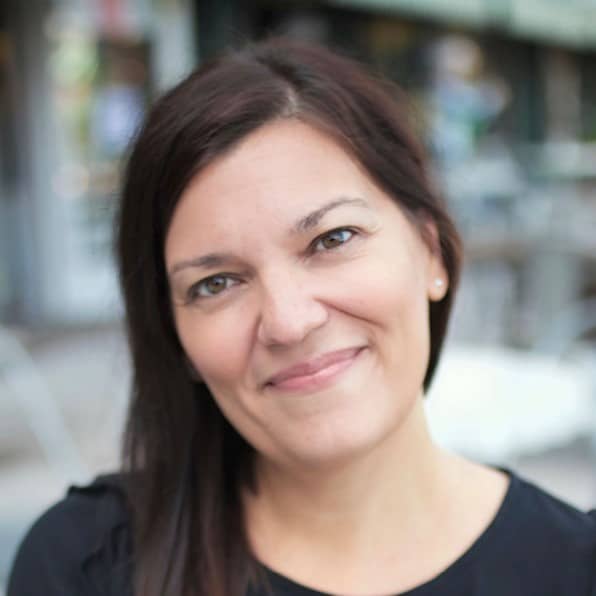
Eeva Sallinen Simard is Chief of Party for World Relief’s USAID funded SCOPE (Strengthening Community Outcomes through Positive Engagement) Project in RMNCH, HIV and COVID-19 response serving in Malawi, Kenya, Haiti, South Sudan, Rwanda, and DRC. She holds a master’s degree in International Politics from the University of Helsinki, and an MBA from Johns Hopkins University Carey Business School. She lives in Baltimore, MD with her husband, son, and daughter.
Clemence, Eeva and Joanna are gender focal points for World Relief’s division of international programs.
Neema’s Plight
In an area known as Mile 46 in the Kajiado District of Kenya, the Elangata Wuas Primary School sits beside a grove of trees. On a seemingly ordinary Friday in July, the whole school — boys and girls, teachers and the headmaster — leave their lessons and gather to welcome visitors outside in the schoolyard. The students, dressed in blue uniforms, fill rows of wooden chairs; girls on the left, and boys on the right.
After a warm welcome and a short introduction, the students stand in groups to present short speeches, dances and poems they had prepared for the visitors. A group of girls perform a traditional dance, some students sing a song, and then Ann Wanjiku stands to present an original poem.
Her words are powerful, her cry sincere. May her voice ring in your ears and move your heart. May you, like me, be changed.
Neema’s Plight
by Ann Wanjiku
In front of you is Ann Wanjiku,
ready to present a poem entitled, Neema’s Plight.
Sit back, relax and enjoy
Birth of a baby, must be a blessing event,
But hers was nothing short of a curse,
Culture, gender, count them all.
A girl is not as welcome as a baby boy,
at thirteen she has to face the worst.
A knife cut across her genital,
a midwife circumcised and stitched her,
she now has a black scar.
Why is it this kind of pain?
This pain of primitive culture?
Dear mankind!
wherever you are!
is she not a human being? (sobs)
As if that is not enough
“14 years is perfect real wife,”
her father said,
As he expected cold cash,
from a 40-year old man,
Killing her dreams, education and childhood,
But marriage was done,
the dowry was paid,
Injecting the title of wife into her bloodstream.
Dear mankind!
wherever you are!
is she not a human being? (sobs)
Thank you.
Today, in honor of International Day of the Girl Child, we celebrate millions of girls like Ann, boldly speaking up and advocating for a future where they have the agency and opportunity to reach their God given potential.
Will you join with us and stand for the rights of girls around the world today? Together, we can help build bright futures for girls for generations to come.
$35 Sends a displaced girl in South Sudan to school.
$80 Teaches five girls how to protect themselves from human trafficking in Cambodia.
$150 Provides a safe place for a refugee girl in Jordan to receive basic education, process trauma and experience Christ’s love through the local church.
$250 Reduces early marriage of young girls in Malawi through weekly clubs that teach girls about their worth and promote future success through education.

Dana North serves as the Marketing Manager at World Relief. With a background in graphic design and advertising and experiences in community development and transformation, Dana seeks to use the power of words and action to help create a better world. Dana is especially passionate about seeking justice for women and girls around the world.
Voices From the Field: Cambodia

Today is International Women’s Day—a day when women around the world are celebrated, their impact recognized, and their God-given potential affirmed. Today, we envision bolder, brighter futures for the world’s women.
There are more than 3.5 billion women and girls in the world today. Women with hopes and dreams for their future. Women who are deserving of agency and opportunity. At World Relief, we are proud to be a part of the movement to create a better world for these strong women.
To commemorate women everywhere, we asked World Relief women working both in the U.S. and abroad to share their perspective on women in their nation. Here, they discuss the challenges they face, the opportunities they have, the potential they carry to shape culture and society and, finally, the hope they have in advancing issues of gender justice in their respective countries. We are excited to share their voices with you all month long in a series from the field.
A Q&A from World Relief’s Female Staff Around the World
Part I : Cambodia
Today we are talking with women from World Relief Cambodia—Sivan Oun, Health Nutrition Program Director and Romroth Chuon, Program Operations Director.
What is the biggest challenge women are facing today?
SIVAN: Women in Cambodia work hard both at work and in the house to raise children and also earn an income to support their families. As a mother, I get up to work early in the morning to clean the house, prepare food for my family and get my children ready for school. I am also the house manager—managing the daily budget to be used more effectively, making sure there is enough food and ensuring my family’s needs are met. Today, more and more women in Cambodia need to work outside their villages, leaving young children in the hands of caretakers, often grandmothers, who are unable to provide constant supervision. On top of trying to do all this, most women have limited parenting skills due to a lack of examples in their own lives.
ROMROTH: I think the biggest challenge women in Cambodia face today is domestic violence in all its forms—physical, sexual, financial and emotional. Most women are unable to get the support they need in these circumstance, leaving many feeling devalued. In rural communities, in particular, women are left out of any decision making. The underlying influence on the treatment of women and the place they hold in society is men’s perception—that women are a weak person and therefore given no power. Many men believe women can’t do anything.
How do you see the influence of women shaping culture/society?
SIVAN: I see the influence of women more now because they are beginning to get involved in community development. The rate of women attending school is on the rise and more are earning good jobs which increases their status in society. In Cambodia, women are the primary caregivers to family. And since more and more women are becoming stronger, they are shaping the future and the potential for equality in society.
ROMROTH: In Cambodian society and culture, there is a proverb that says, “A woman is like white cotton. If she falls on ground and gets dirty, she is not needed anymore” But right now, I can see the empowerment of women because more are participating in society and more women are able to explore their potential. There are some women who even have a role in government sectors. Another aspect is that men are learning more about gender equality and some are even starting to support women in the housework.
How is your office empowering/providing opportunity for women?
SIVAN: In the Health and Nutrition project, there are three trained women on the health field staff. 99% of 280 the volunteers in the 26 Care Groups are women, while only 1% are men. The focus of this project is to teach health, nutrition and early childhood development lessons that these volunteers can then take back to their communities to educate other women in order to raise healthy families.
ROMROTH: About 80% of participants in our programs are women. So it is a really great opportunity for us to empower women to reach their potential. We run programs in:
-
Human trafficking prevention and protection training, where community leaders build awareness and give support to protect women and children from trafficking.
-
Savings and Business Development training, where we seek to teach women about financial management and how to use their resources wisely. Many women build leadership skills in this program as they lead other savings groups and empower other women.
-
Child Development trainings, where female volunteers are trained to raise their children and other children in their village to be holistically healthy children– spiritually, emotionally, physically and mentally. Child development is a great place for women to build their skills, confidence and self-esteem.
What are you most hopeful about for the future of women?
SIVAN: I’m most hopeful that in the future women will attend school or literacy programs, learn a skill and work toward a career. But also that they would gain awareness, knowledge and understanding about raising children and building a strong family.
ROMROTH: I do hope women will have a better future and continue to stand firm in who they are. I am hopeful women will get equal rights in families and communities. I am hopeful women will support each other and build peace. I am hopeful women will learn how to manage their family finances well and develop their leadership skills. And I am hopeful women will have a voice and stand up to advocate against all forms of domestic violence.

Dana North serves as the Marketing Lead at World Relief. With a background in graphic design and advertising and experiences in community development and transformation, Dana seeks to use the power of words and action to help create a better world. Dana is especially passionate about seeking justice for women and girls around the world.
Frontline Report: International Day of the Girl Child

Frontline Reports is a series written entirely by program experts and local staff on the ground where World Relief works – updating on the countries, contexts, and situations, as they evolve.
I grew up in the Democratic Republic of Congo, where at the time, my parents were serving as missionaries. My best friends were girls from local families. We sang in the church choir, had sleepovers, played soccer, and did our homework together. It was a sweet and simple time, where the different color of our skin and cultural backgrounds was forgotten. In those moments, we were just kids playing games and growing up together.
As we grew older, however, things began to change. At age 13, I continued with school, while my girlfriends began staying home to take care of their siblings, and cook and clean the house. Now considered mature adults at the tender age of 13, they were expected to shoulder the majority of household responsibilities. If their parents could not afford to pay their school fees, or if there was too much to do at home, they would miss school.
Then, at eighteen, when I was preparing to move to the US for college, one of my friends looked at me and said, “You are lucky. You can do anything you want. Please, don’t forget about us.” It was in that moment that it dawned on me that while I was looking ahead to a bright future with countless opportunities; most of my friends would stay behind, lucky if they could afford to complete secondary school in a war-torn, poverty-stricken country.
The Challenge
Today, there are over 1.1 billion girls in the world—girls with hopes, goals and dreams for their future. And while every girl deserves equal opportunity to build her future, there are still significant challenges and barriers that stand in the way for girls all over the world. Conflict, poverty, access to education, cultural and religious norms, and social conditions are all factors that today limit girls’ access to equal opportunity.
A recent report by UNESCO found there are 31 million girls of primary school age who are not in school [1], and adolescent girls in conflict zones and 90% more likely to drop out of school as compared to girls in conflict-free countries [2], which has significant impacts for their futures. Additionally, as families are displaced, the risk of sexual violence against girls and women increases drastically and families are forced to rely on negative coping mechanisms like early marriage and child labor.
Poverty is also a significant barrier for girls, as their educational future is often dictated by the economic position of the family. When families cannot afford to send both children to school, they will almost always choose to send the male child, as girls are seen as less valuable than boys. This also leaves girls at increased risk for early child marriage. Many cultures today still believe that a girl is ready for marriage upon reaching puberty, meaning girls are dropping out of school to get married. Each year, over 12 million girls are married before they reach 18 years old, compromising their future prospects for both work and financial security. Oftentimes, girls are married off to older men so that the bride price can support her family. Isolated and with limited freedom, these girls are deprived of their rights to health, education and safety.
The Opportunity
“So God created mankind in his own image, in the image of God he created them; male and female he created them.” (Gen 1:27, NIV).
At World Relief, we believe that girls and women are made in the image of God. By working alongside local churches and community members, we work to empower girls around the world as they strive to build bolder, brighter futures. Here are some of the ways in which we are responding:



In Malawi, a girl is 50 times more likely to be married before age 18 than to enter university by age 18. 42% of girls have experience physical violence in childhood, and 22% of girls have experienced sexual violence in childhood [3]. Since 2016, World Relief has implemented girl’s groups reaching over 4,000 adolescent girls and young women in Malawi. In partnership with UNICEF, we’ve formed groups for adolescent mothers to learn more about early childhood development, nutrition, protection from HIV/AIDS and other relevant subjects. In an effort to prevent school dropout, we also bring together additional groups of girls aged 13-17 years old who provide support and encouragement to one another as they learn essential life skills during a 10-month curriculum.
In South Sudan, the world’s newest nation, millions struggle as a result of extreme poverty and poor access to food and health care. Civil war and escalating rates of violence have caused many humanitarian organizations to withdraw from the fledgling nation. Here, World Relief is reaching children whose schooling has been interrupted by conflict through our Education in Emergencies programming. This program supports primary schools to reopen, as well as providing child friendly spaces that offer primary school lessons in the absence of formal schools. Children receive school supplies to support their lessons, and teachers receive capacity-building and professional development training. To date, World Relief has enrolled 23,605 children, about 37% of whom are girls, and supported 315 teachers.
In Jordan,World Relief has developed a gender equality through sports program, using soccer as a tool to empower women and girls in vulnerable communities. In more traditional areas of Jordan, girls have very limited opportunities to exercise or play sports. Our sports program has fostered self-esteem, empowerment and self-advocacy for girls from all backgrounds by challenging harmful gender norms and providing opportunities for leadership. The program has also brought both Jordanians and Syrian refugees together and provided an avenue for dialogue and violence prevention. Since 2016, nearly 300 girls have been reached through the soccer program. The change has been incredible. Teachers have transformed into coaches, students have transformed into athletes, and loosely held hopes have transformed into bold and vibrant dreams.
Call to Action
Today, on International Day of the Girl Child, I am reminded of the words of Malala Yousfzai (Pakistani education activist) who said, “We cannot all succeed when half of us are held back.” So let us strive forward and continue to be advocates and champions for girls. Let us bring gender injustice and inequality to light so that girls may be protected, celebrated for their gifts and talents, and given equal opportunities to pursue their dreams. And let us imagine the impact across nations when we invest in young girls, realizing their unique value as girls who have been beautifully and wonderfully made in the image of God.
[1] UNESCO: Girls’ education – the facts, October 2013
[2] Education for All Global Monitoring Report, 2015
[3] Together for girls: Malawi

Laura Mouanoutoua joined World Relief in 2015 and currently serves as Program Officer for Disaster Response and Middle East programs. Laura grew up in the DR Congo, where her parents served as missionaries, and has witnessed first-hand the difficulties that internally displaced peoples and refugees face. Laura is passionate about engaging against social injustices, with a strong spiritual conviction and desire to work with the church at large for the support and success of refugee and conflict-affected populations.
Frontline Report: Democratic Republic of Congo
Frontline Reports is a monthly series that provides updates on the countries, contexts, and situations in which we work as they continue to evolve. The reports are written entirely by program experts and local staff on the ground.
A Complex Crisis
The Democratic Republic of Congo (DRC). Referred to affectionately as the Heart of Africa; rich in resource, culture and beauty. The nation has some of the greatest concentrations of valuable raw minerals in the world, and Eastern Congo, in particular, is fertile and ripe for agricultural development. And yet this nation and its people have been engaged in a cycle of conflict and violence which has stolen more than five million lives and kept millions more from being able to realize their full potential.
In 1994, the devastating effects of the Rwandan genocide spilled over borders into the DRC, Burundi, and Uganda. Since that time, Eastern Congo has suffered constant unrest and instability. Dozens of armed groups have operated in there, at the great expense of the local population. Cyclical conflict and political gridlock have exacerbated problems of underdevelopment in the region, and the most vulnerable still suffer from interrupted livelihoods, inadequate systems of justice and lack of physical and mental health care–particularly for women and girl survivors of sexual and gender-based violence (SGBV).
The overwhelming nature of the ongoing conflict in Congo can oftentimes be discouraging, made harder by the fact that we cannot claim to have all the solutions to the complex problems facing the nation at this moment. But at World Relief, we see beyond these seemingly devastating challenges. And we have hope, because we know that the solutions to Congo’s challenges, as well as the capacities to implement them, are already inherent within the communities we serve. That is why, beyond addressing the immediate humanitarian needs of the most vulnerable in Eastern Congo, we go a step further to work with and alongside churches and community members toward long-term sustainable change.
Sustainable Solutions

In our sexual and gender-based violence program, we not only provide immediate peer-to-peer psychosocial support and links to medical and legal services, but we also work to change community perceptions and stigmas surrounding SGBV survivors. In communities where survivors are often blamed for what happened to them, World Relief is mobilizing churches and communities to change hearts and minds and to speak out against SGBV to prevent future incidents, as well as to reintegrate survivors into their families and societies.
Similarly, our Peacebuilding work fills a crucial gap for community members seeking justice at the local level. Village Peace Committees (VPCs) do not just provide short-term solutions to disputes, but interrupt cycles of violence and revenge by focusing on reconciliation and forgiveness. Most importantly, families and community members form agreements to bury grievances, relationships are reconciled and potential tensions dissipate before they have the opportunity to spur conflict among wider groups.
In our Agricultural program, we not only equip farming households with improved seeds, tools and training to maximize yields, but we also train them on how to save seeds for future seasons and connect them to savings groups so they can save the income earned from selling their surplus produce and increase their household safety net.
In each of these solutions, World Relief comes alongside local churches– the widest and most influential social network in Congo. We currently work through more than 250 churches which are actively mobilizing more than 950 volunteers to reach the most vulnerable, both within and outside their congregations. It is these community members who will remain–long outlasting World Relief’s presence and ultimately catalyzing transformation in their communities.
Small Beginnings
These solutions, and ultimately their impact, may not grab headlines. Transformation will not be sudden. Yet at World Relief, we take heart in these small beginnings. Because we know that the Lord rejoices to see this work begin (Zechariah 4:10).
We are grateful for our partners who have had, and continue to have, the courage to embark on a journey of transformation one household, one church and one community at a time. As an old Swahili proverb reassures, “The careful traveler goes far.”
Thank you for your continued support.

Heidi Dessecker joined World Relief in 2010 and has served in both the US and International Programs. She previously served as the Program Officer for Democratic Republic of Congo, South Sudan, and Sudan. Heidi is passionate about gender issues and reaching women in some of today’s most complex crises.









